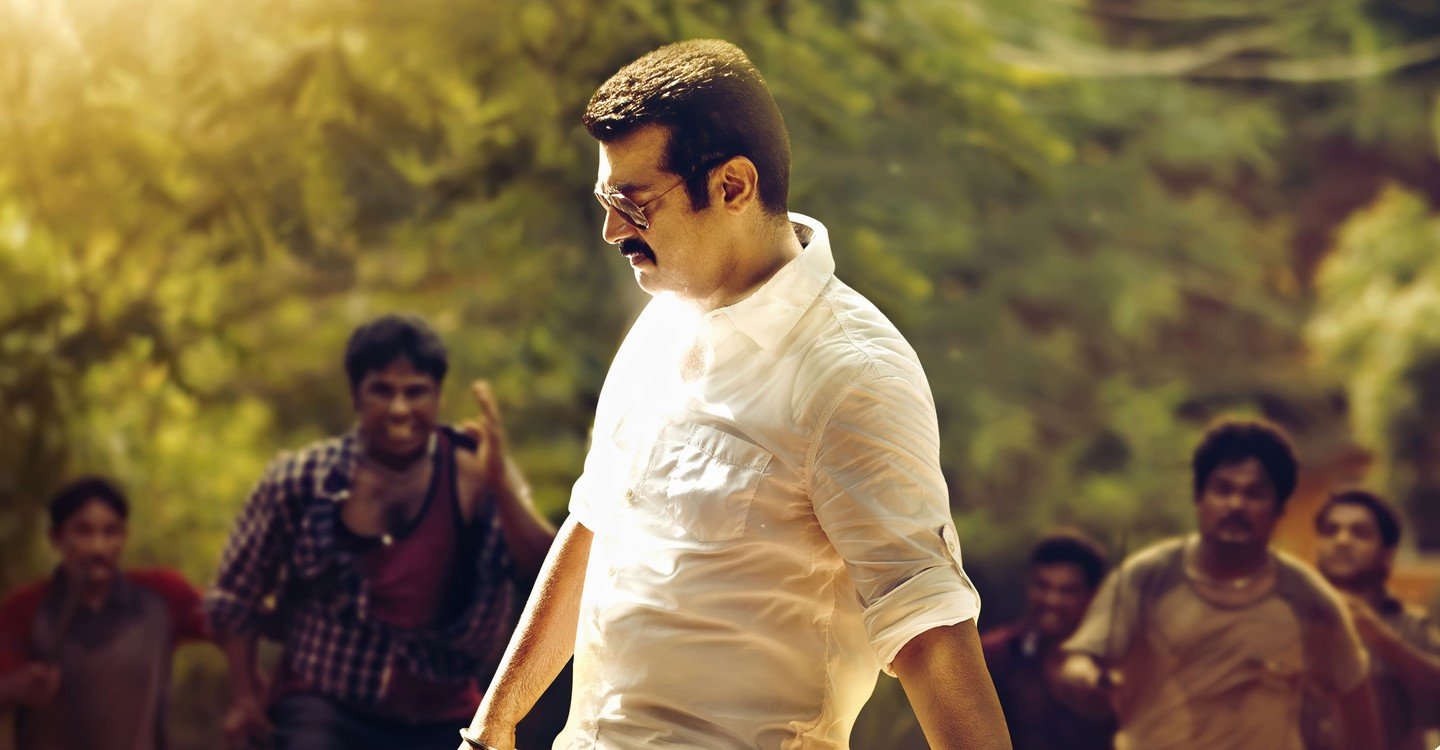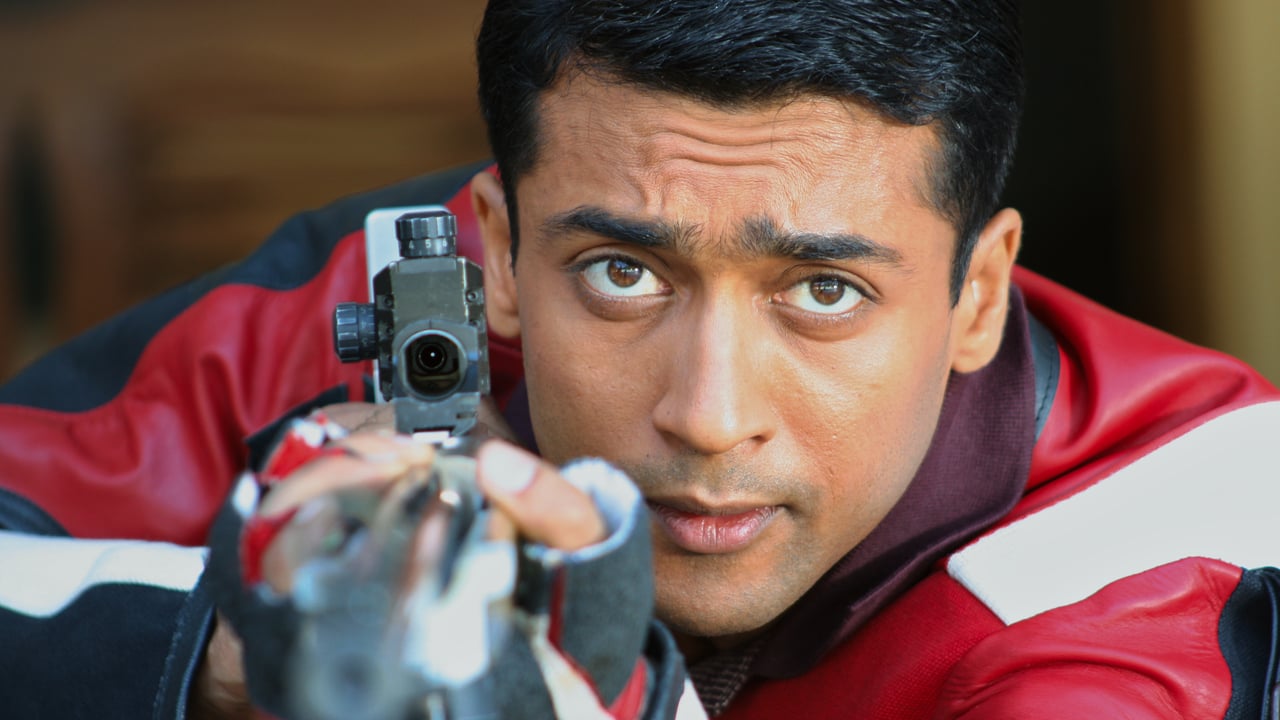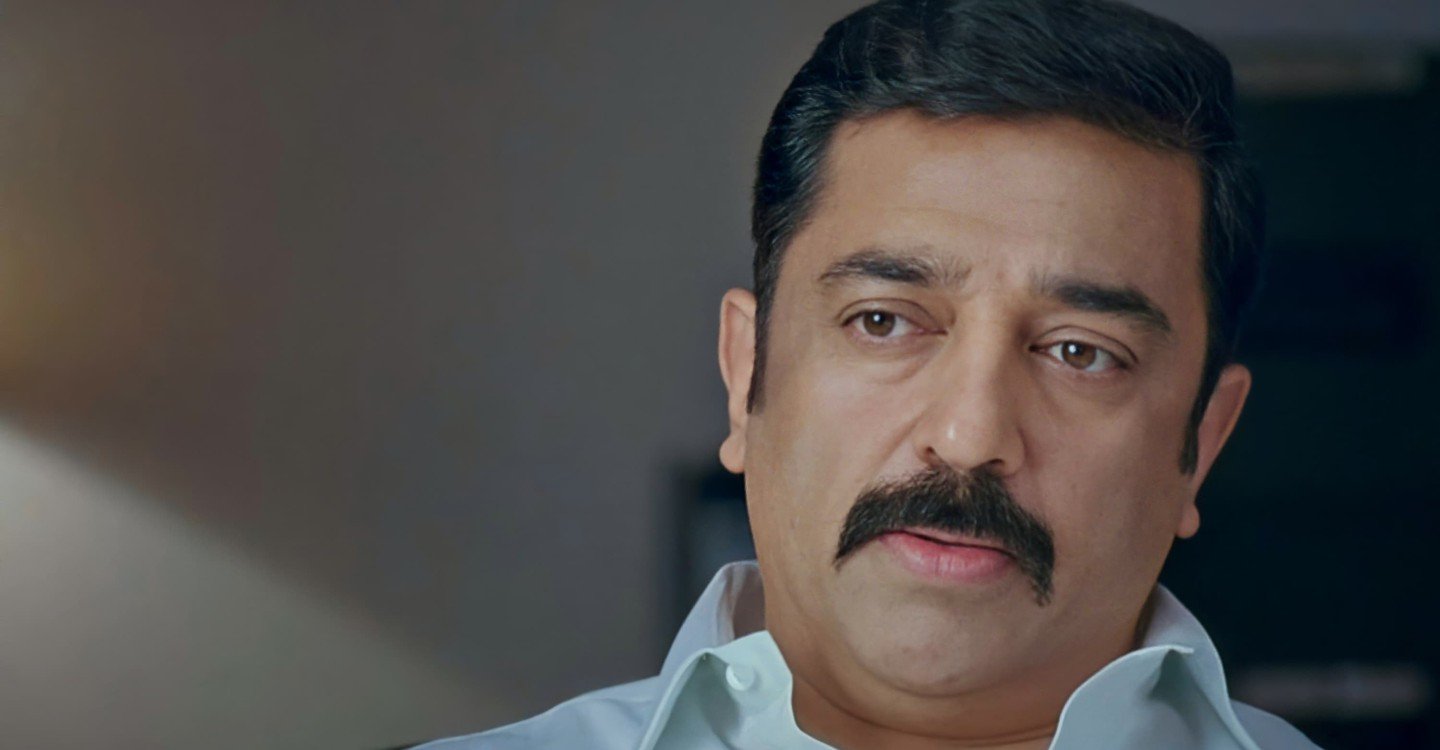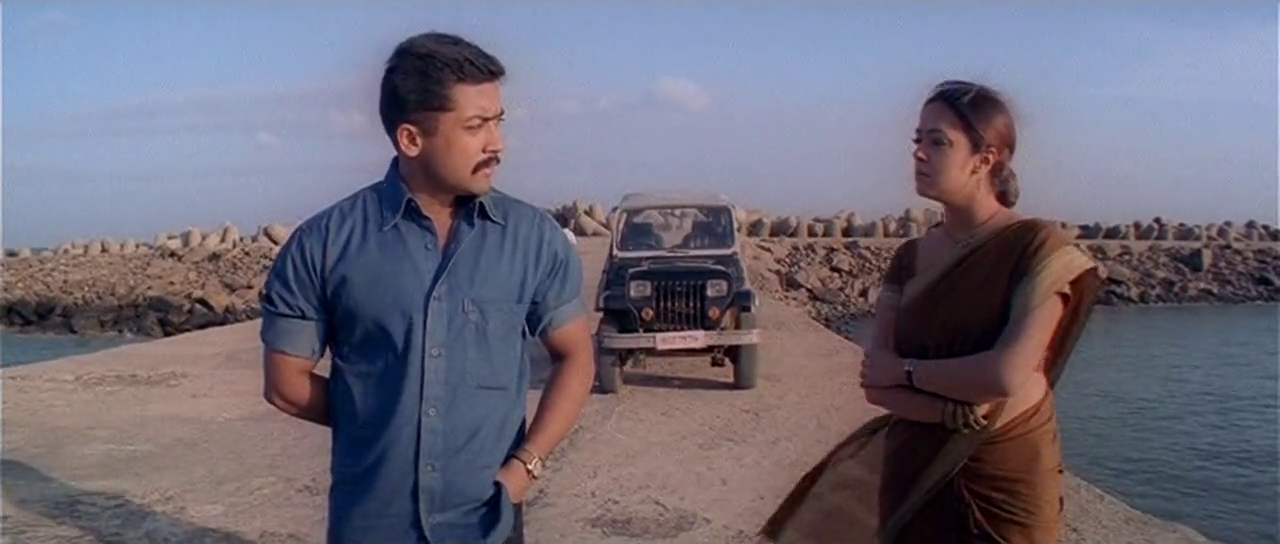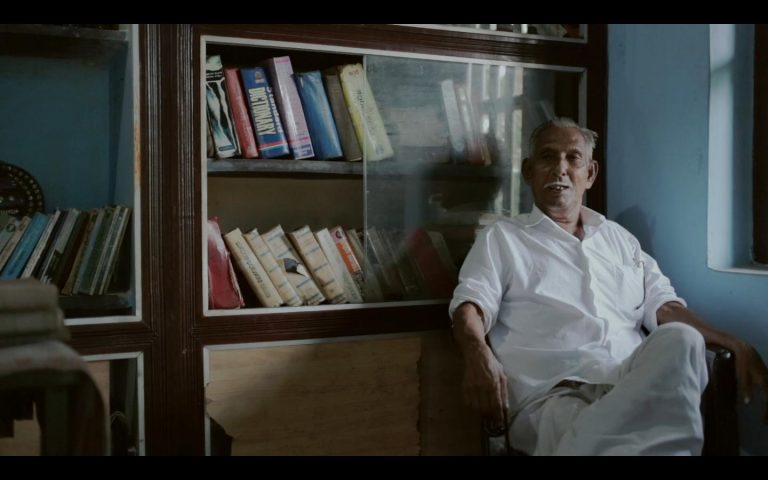Gautham Menon is one of the rarest film-makers in Tamil Cinema, for he was the one who restarted the trend of auteurs in an industry that never got cured of its obsession with stars and mass movies.
Even if K Balachandar, Bharatiraja, and Balu Mahendra were auteurs in their own right during India’s pre-liberalization era, their works were confined to a more arty genre, and it was Mani Ratnam who, for the first time, imbued the ‘mass’ genre with a tinge of auteurism with Nayakan (1987), Agni Natchatram (1988) and Thalapathy (1991). But Mani soon branched off into more ‘niche-dramas’ and the ‘mass-action’ genre returned into the usual hands of ‘masala’ specialists, Tamil Cinema was so full of.
In 2001, close to two decades after Mani Ratnam made his debut, Madhavan’s Minnale was released, and the time for his successor had finally come. Gautham’s Minnale was a super-hit, but it is remembered more as a film with chartbusters than as a commercial trend-setter. It was his low-key, mass-action thriller Kaaka Kaaka (2003) starring an emerging Suriya that put Gautham Menon on the map.
From then on, Gautham has gone on to create a genre for himself, snatching the ‘mass’ baton from the hands of the usual uneducated, lower-class, Tamil-proud hero and thrusting it into the hands of a Kada-wearing, smartly-dressed, clean-shaven, English-spouting urban upper-middle-class youngster.
This was a minor revolution in its own way since right from the days of MGR, the mass hero was expected to be representative of the lowest-common-denominator of the Tamil masses, and an English-spouting, upper-class character was usually associated with the villain’s camp. But this move was not without its repercussions- Gautham’s films were often ignored by people of rural Tamil Nadu who were not quite conversant with the sensibilities and interests of those they represented.
But despite that, Gautham’s entry bode well for Tamil cinema in a lot of ways- his films became the first ones to depict with dignity and empathy, the lives and problems of urban Tamils whose size grew larger and larger with the emergence of liberalization-led IT revolution that Tamilnadu quickly went on to embrace, his sensitive portrayal of women characters liberated them from the traditional bounds of chastity and moral compasses defined by gender-bigots and finally a robust craft that stylized violence and redefined mass-staples came as a breath of fresh-air for fans of mass-action films like me.
5. Yennai Arindhaal (2015)
Yennai Arindhaal was the latest of Gautham’s cop trilogy that began with Kaaka Kaaka (2003) and Vettaiyadu Vilaiyaadu (2006). This film institutionalized what came to be known as ‘Gautham-isms’ – the hero’s bonding with a warm yet straightforward father, a long-distance journey that provides emotional catharsis during difficult times for the hero, a female protagonist who cannot stop commenting about the hero’s manliness and good looks and most importantly a killer soundtrack composed by Harris Jeyaraj.
Despite the last-hour slump into tedious chases and tiring stunts, YA preserves so much freshness in the way the story unfolds. Satyadev (Ajith Kumar) meets his lady-love in a very unusual situation for both of them – he is on an undercover mission as an auto-rickshaw driver when Hemanika (Trisha), a lone pregnant woman struggling to get a lift to the hospital, asks him for a ride as the pangs of labor begin to consume her. It is not only a situation where the hero meets his lover for the first time, but also a crucial point of departure where he will also meet a partner who will accompany him for the rest of his life – Hemanika’s still-unborn daughter.
This was probably the first time in Tamil cinema that a young, mass hero with the following of someone as big as Ajith is allowed to fall for a woman who already has a daughter from a different man. And as Hemanika dies, her daughter falls into the custody of a still-unmarried Satyadev, and their relationship blooms beautifully into something deeper that later goes on to inform even his life as a ‘cop’. No film in recent times has depicted so nicely the ways in which the personal and professional lives of cops intermingle, and this is one big reason why this film appears in this list.
4. Vaaranam Aayiram (2008)
Some people might rate this film a notch higher than others on the list, but Vaaranam Aayiram worked for me for all the unusual reasons. This film was made when Gautham’s father had actually died and was advertised widely as a tribute to fathers. But what worked for me was the way the growth of Surya (Suriya) from a child to a man was depicted, and the portions where the hero reminisces about his father were strangely the film’s weakest.
As a third-year college student, the scenes of a fresher Surya proposing to Meghna and his pursuit of her from Chennai to New York were an absolute delight to me, and whenever I watch these scenes on YouTube or television, it is still difficult for me to stifle a smile. It is precisely for these scenes that the film is still remembered for, and Harris Jeyaraj’s other-worldly music plays yin to the screenplay’s yang, and the result is a first-class first half that stands too tall in comparison with a still-very good second.
The film garnered so much hype initially for something that we heard for the first time in our lives- a ‘six-pack’ abdomen sported by Surya. His back-breaking efforts to reduce his weight to close to one-third of his usual were talked about everywhere in Tamil Nadu. Even if his physical transformation was staggering, it was his performance that stood out, and his famous wailing scene at the phone booth announcing the death of Meghna to his parents is a sturdy showpiece for his acting prowess.
This was also the first time in Tamil cinema, a hero struggling with a life crisis was shown to find solace somewhere in the unknowns, and the portions where Surya undertakes a journey to get rid of his obsession with the past are still memorable. The later-half where Surya moves on from his-ex to gravitate towards Priya (Divya Spandana) to the tunes of a sober, lilting Anal Mele Panithuli is a nicely-directed stretch that contrasts sharply with the wild, passionate love that drove him towards Meghna in the first half.
Another great aspect about this film was the way Gautham slices open the male psyche with the help of the voice-over technique that he introduced first in Kaaka Kaaka. Here in VA, he perfects the technique and gives you the cinematic equivalent of a ‘stream-of-consciousness’ narrative.
This method didn’t go well with some viewers, and Gautham’s usual tendency to glorify ‘first’ love and his heroes’ angelic obsession with their lady-love that found expression in VA began to sharply divide his audiences into crazy-fans and snobbish haters. But that was the best thing about Gautham, who never had wanted to address his detractors and loved to remain content with catering only to those who could understand his cinema ‘language’.
3. Vettaiyaadu Vilayadu (2006)
To be honest, this was the first film I witnessed Kamal Haasan in all his ‘mass’ glory, and I began to keep his photographs as my desktop wallpapers. For many of us Tamils born in the late 1980s, Kamal Haasan was always the experimenter, with Rajnikanth being the only epitome of mass and action. Kamal, apart from a brief outing in Kuruthipunal (1995), had never played a ‘normal’ man, and most people in Tamil Nadu had never associated anything ‘normal’ with his on-screen persona. But it was 2005, and Kamal was touted to join hands with a new-generation filmmaker for the first time in his career.
The film went through a lot of production delays, and in September 2006, Vettaiyadu Vilayadu was released. The film begins with a disclaimer, ‘Another episode in a police officer’s life’, indicating its ties to Gautham’s previous cop-outing Kaaka Kaaka (2003). The film’s opening shot is reserved for the hero introduction, which in Tamil cinema is never less than convoluted and overhyped.
But here Kamal opens with a ‘literal’ bang, kicking open a gate and breaking into the premises of an evil hooligan’s house. In many ways, what Kamal did with VV was a real shattering of a stereotype – to prove that he is not always a stereotype-shatterer doing maverick roles, trying to push the boundaries of mainstream Tamil cinema. He proved with VV that he could also play a normal, understated mass-hero who could give other action-superstars a run for their money.
Kamal Haasan plays Raghavan, a DCP who has an ‘instinct’ to nab elusive murderers and criminals. He is shown to be a widower who had lost his beloved wife some five years ago, but his love for the job has continued to be a diversion, giving him a reason to live. Soon, he is assigned a case of brutal serial murders that begin in rural Tamil Nadu and extend up to the United States. How he solves the murders, nabs the criminals, and begins a new life with a divorcee, Aradhana (Jyotika), forms the rest of the story.
Related to Gautham Menon: 14 Great Tamil Movies You Can Stream on Netflix Right Now
Even if the procedural portions of VV are nicely laid out, Kamal’s carrying of an introverted cop in the role of Raghavan becomes one big reason why you should see this film. Gautham’s expertise in the building of romantic universes that came into full play with later films like Varanam Aayiram (2008) and Vinnaithandi Varuvaaya (2010) gets nice, yet memorable flashes here in the Kamal-Jyotika and Kamal-Kamalini sequences.
Another distinguishing feature of VV is the way a lot of dialogue in the latter half is written in English, and the use of subtitles to explain major plot portions was a daring move then in mainstream Tamil cinema. This was, however, one of the reasons why the film was received a bit coldly in rural areas, but Gautham’s doggedness to stick to some of his rules has never failed to serve the material well.
Gautham in VV also improved Mani Ratnam’s practice of shooting song videos in real, lived-in locations, and the raw, yet stylish Karka Karka sequence shot exquisitely to worship the stardom of Kamal Haasan is one big tribute from a fan-boy to Tamil cinema’s one of the greatest cultural icons.
2. Kaaka Kaaka (2003)
The skeleton of the story is as old as the hills. A good cop meets a bad group of criminals and tries to eliminate them, in the process of which he loses his loved one. But what sets the first film of Gautham’s cop trilogy apart is this – the structuring of the narrative. Anbuselvan (a superb, never-seen-before Surya) is a complete loner but is one of the top cops in Tamil Nadu and crosses swords with a notorious gang of criminals. He comes close to nabbing them but fails. He is soon transferred to a law-and-order division where his work is much less dangerous. He is much freer than before and completely forgets his erstwhile criminal rivals.
Soon he comes in touch with a high-school teacher, Maya, whom he gets attracted to but remains unwilling to pursue. When she proposes to him, he rejects her on account of his dangerous job, but she insists. Soon, he falls for her, which is followed by his unexpected restoration to where he really belongs, the Crime Branch. He is back on the trail of the dangerous criminals, this time with baggage, and what follows is the rest of the story.
Gautham Menon, despite his proficiency in handling different genres, deserves to be called an absolute genius only when it comes to plotting out ‘perfect’ romances. Even his bad films, such as Achamenbadhu Madamayada (2015) and Ennai Nokki Paayum Thotta (2016), have delicately plotted ‘boy-meets-girl’ threads, and here in Kaaka Kaaka, he is virtually on fire.
Jyotika as Maya is a literal feast for the eyes and the senses, and her performance as a playful, yet dignified school-teacher who knows exactly what she is doing despite her age is certainly her all-time best. The scene where she proposes to Anbuselvan amid the interludes of lapping waves and blowing breeze, and the way it ends with a voice-over description by him is one nice, stand-out scene among many.
Related to Gautham Menon: When Ayyappan Becomes Mundoor Maadan: A Brief Analysis of Sachy’s ‘Mass’ Film
Ennai Konjam Maatri song is another example of Gautham’s mastery in shooting romantic songs in real-life locations, while Ondra Irandaa is the first one in Tamil Cinema that allows a female protagonist to voice her innermost desires and lustful impulses that ring so true on account of its being composed by a female lyricist, Thamarai.
Even if I am not a fan of how Gautham Menon writes his villains, he builds his mass scenes in unspectacular, ordinary locations and edits action-blocks that look subtly effective without attempting to reach the artificial intensity of elaborately conceived set-pieces that you find in Shankar’s films. As a result, every frame in the action-filled Kaaka Kaaka resides with quiet dignity in the film with unimpeachable consistency with the overall tone of the film. If you are a fan of well-made action films, Kaaka Kaaka stays right there for your taking, ranking majestically among the best films of the new millennium without calling for attention to itself.
1.Vinnaithaandi Varuvaaya (2010)
Most middle-class youngsters born and brought up in relative prosperity, untouched by personal tragedies, do not grow up ‘responsibly’ at least till their early twenties. They study because they were told to, follow ambitions drilled into them by their elders, and their commitment to achieving something in life is either absent or still in its nascence.
Their lives do not turn purposeful until something bad happens, something like a reality check that throws them off-board to face the sudden waves of misery-filled human existence. And that reality check happens for a middle-class, reluctant engineering graduate Karthik (Silambarasan) in the form of Jessie (Trisha) in Gautham Menon’s greatest film ever, Vinnaithandi Varuvaaya, similar to a lot of men who learned their first bitter lesson in life only in the form of a life-altering, romantic breakup.
An aimless Karthik, who just wants to make films and knows nothing else, meets a slightly elder Jessie, who, in contrast, knows nothing about films. It is love at first sight, strangely for both of them. They make and break and make and break, and at one juncture, when everything seems settled for a stable long-term relationship, she suddenly decides to call it quits and for no understandable reason. Karthik is shattered as Jessie goes abroad to start a new life with another man. Jessie’s sudden departure takes the wind out of Karthik’s sails, and he finds himself completely lost and, of course, in a shambles.
Unlike Varanam Aayiram’s Surya, he doesn’t do drugs or allow his passion to consume him. The pain is wrenching, but he somehow tries to gather himself and make something out of it. He channels all his frustration into something creative, towards making films. The sudden tragedy gradually churns a committed artist out of the remains of an aimless boy as the pain that threatened to be destructive slowly recedes in intensity.
Karthik begins scripting his first feature and burns all his pain into the making of the film. The memories of Jessie that haunted him day and night start turning into fodder for his creativity, and Karthik finds himself occupying a body that is in the midst of an unforeseen transformation. Towards the end, when his film gets ready for a release, he finds, to his sudden relief, that all his pain has somehow turned into a stream of endless joy and enlivening ecstasy that finds expression in the form of an elegiac number, Aaromale.
Gautham Menon’s stream-of-consciousness narrative that brings in the voice-overs of both protagonists elevates the usual boy-meets-girl tale into something magical and even therapeutic. No film VV has seen Gautham in so much control of his craft, and his only collaboration with AR Rahman wove stanzas and stanzas of stirring poetry into every frame of this unforgettable gem of Tamil cinema.
Silambarasan’s understatedness in the early portions, his explosion into mad rage and helplessness in the second half that gets a much-sober culmination towards the end, is one hell of a performance range. If Hosanna bubbles with the playful liveliness of Karthik’s newfound love and Omana Penne simmers with the tension associated with the forbidden carnal exploration of the lovers, Kannukkul Kannai represents the unsettling capriciousness that characterizes Jessie throughout the film.
Gautham Menon’s Vinnaithandi Varuvaya was the first film in Tamil to feature a breakup that had not much to do with external factors such as religion, disease, or parental interventions. It was the first film that spoke about the disconcerting ambivalence that some women undergo, struggling to cope with societal stigmas associated with love and romantic attachments. It was the first in Tamil and even in India to depict how love sometimes grows boys into men and how something as negative as pain could be tapped into something positive and creative. Imitiaz Ali’s Rockstar, which was released a year later, handled a similar theme, and Sadda Haq was Hindi cinema’s answer to Tamil’s Aaromale.

